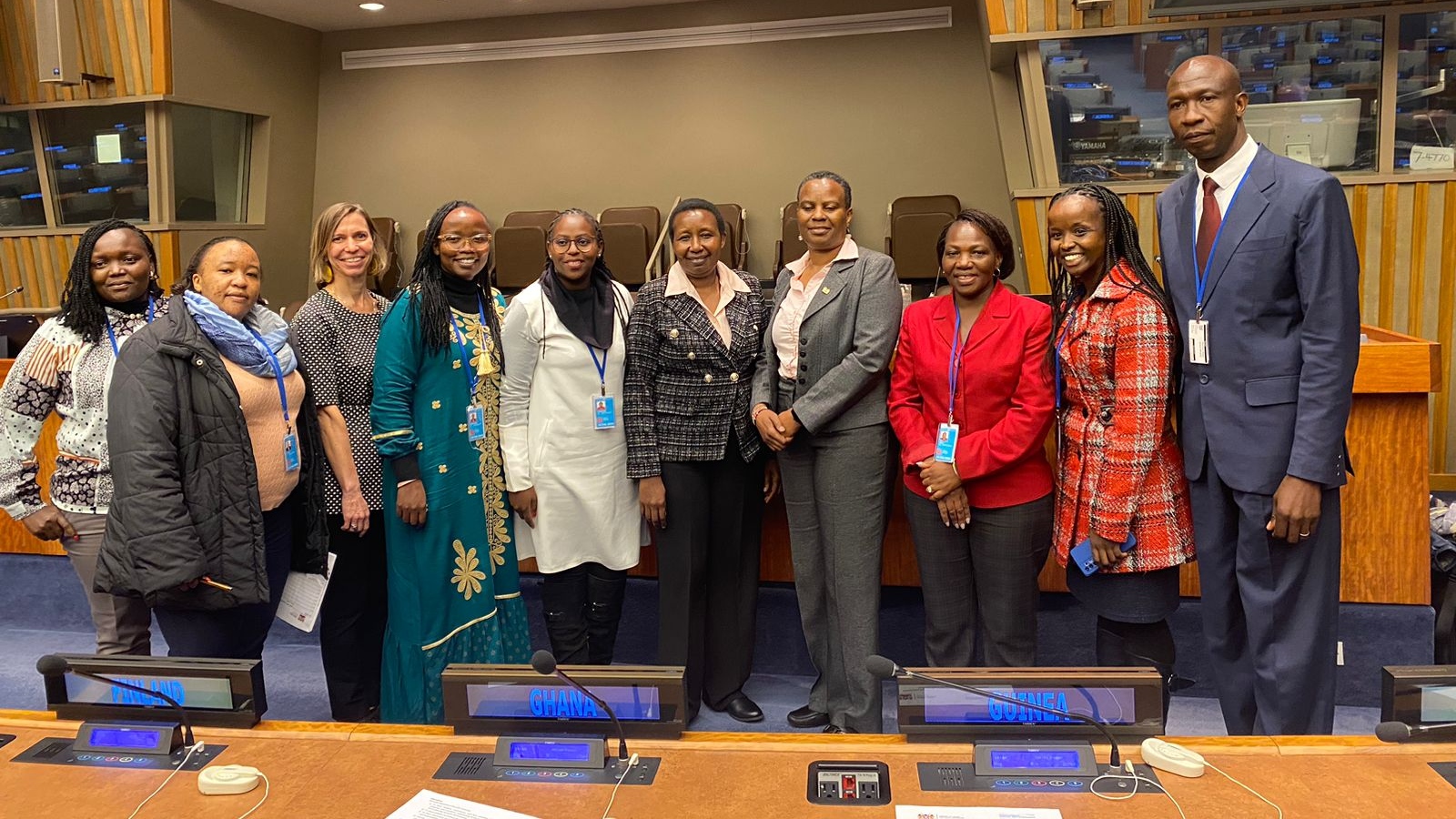
12th February 2024, UN Headquarters in New York, CSocD62 side event organized by the Government of the Republic of Kenya, in collaboration with the World Food Programme (Kenya); UNICEF(Kenya); Village Enterprise; Investing in Children and their Societies (ICS -SP) and BOMA.
Objectives
The main objectives of the side event were to share insights, experiences, and best practices related to social protection programs and initiatives, contributing to the overall goal of reducing vulnerability and promoting inclusive development. The event discussed the importance of multi-stakeholder partnerships in designing, implementing, and sustaining social policies, and the significance of leveraging technology to enhance the effectiveness, reach, and sustainability of social protection initiatives. Insights were also shared on evidence-based family strengthening programmes.
Key Highlights
Africa has been making significant strides towards social development. Particularly, social protection programmes have become an integral part of development for most countries. These include cash transfer programmes, economic inclusion programmes, school feeding programmes, livelihood programmes among others. The programmes have contributed to the achievement of the Sustainable Development Goals.
Adoption of an integrated approach to social programmes to cover the life cycle is significant. Social policies should therefore be multifaceted, to cut across, various issues concerned with social development.
Most African countries have high levels of rural poverty which is exacerbated by climate change. Livelihood empowerment programmes that support those in the extreme poverty are therefore key to ending poverty and other vulnerabilities.
Family strengthening programmes are instrumental in promoting positive outcomes for children, families, and communities. By equipping parents/caregivers with the tools and support they need to create nurturing and supportive environments, these programmes contribute to the overall health and resilience of society.
Partnerships and collaboration between government, development partners and non-governmental organizations create impactful contextually solutions, introduce innovative and adaptive strategies. It is therefore important to leverage on each partners strength by maximizing their unique contributions.
Lessons Learnt/Recommendations
- It is important to strengthening institutional capacities on research, and monitoring & evaluation to those implementing social protection/security programmes.
- Enhancing government staff capacity ensures sustainability and reach of social protection programmes.
- Climate change affects mostly those in rural economies, therefore, there is need to educate communities to be food secure in the midst of climate change.
- Governments should invest on shock-responsive social protection programs to provide timely and effective assistance to individuals and households facing sudden and unexpected shocks or crises.
- Evidence based positive parenting programmes can prevent and buffer the effects of violence against children and other negative influences that come with it and affect social development.
- Sense of community support under family strengthening programmes reduces feelings of isolation, increase resilience, and empower parents to navigate difficult situations more effectively.
- Parents are the primary influencers of a child and therefore strong families create social stability, and strong societies lead to sustainable futures.
For more information about the 62nd Commission for Social Development (CSocD62), please visit: https://social.desa.un.org/csocd/62nd
Source: Government of the Republic of Kenya
 Welcome to the United Nations
Welcome to the United Nations